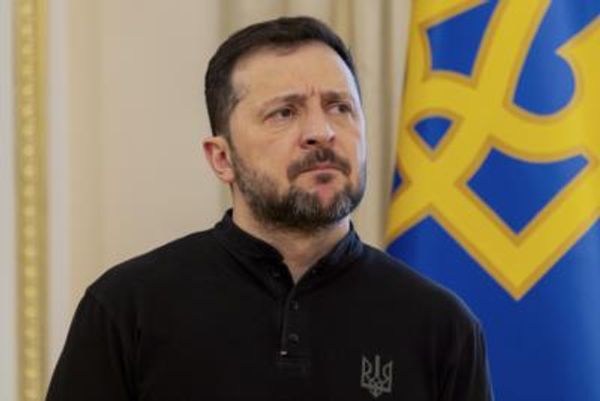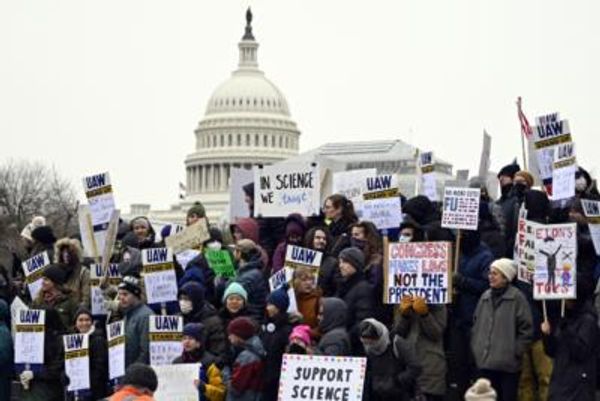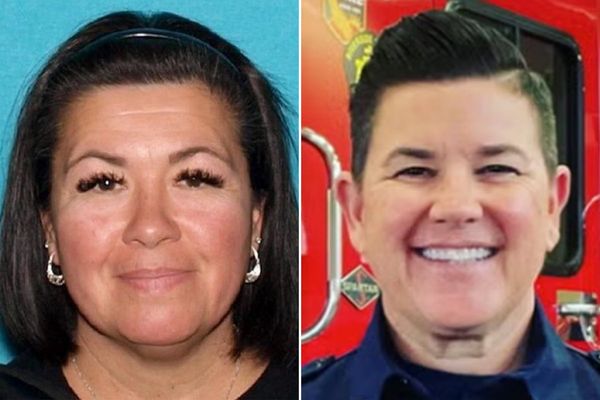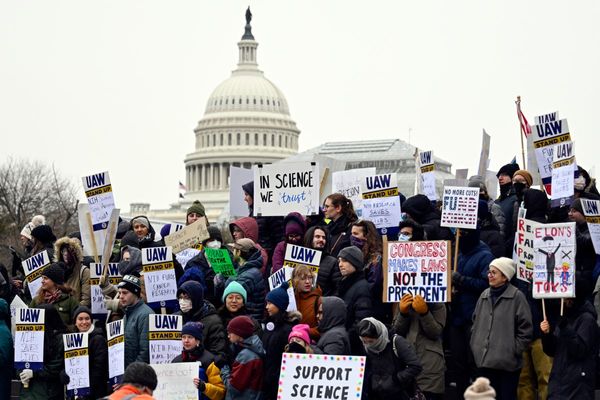
In Jurassic World: Dominion, a fate worse than extinction has cruelly visited the cloned dinosaurs that have been roaming on silver screens since 1993: They’ve become mundane. A nuisance. The kind of pests you might call your local wildlife department about, as you peek out your window onto the backyard and say with a sigh, “Honey, there’s another pack of Compsognathus trampling the daffodils.” Anyone heroic enough to remember the last Jurassic World movie, Fallen Kingdom, might recall that it ended with herds of dinosaurs finally escaping their island paddock, free to rampage and terrorize the globe. Now they’re nothing more than part of the scenery.
Writer and director Colin Trevorrow, who made the original Jurassic World in 2015, has returned to the franchise after the uniquely warped The Book of Henry. To him, sound logic supports the idea that dinosaurs would blend into Earth’s contemporary environments rather than take them over. But I’m not sure audiences fork over money at the box office to enjoy some sound logic; I certainly prefer any Jurassic movie to have a healthy amount of humans getting elaborately chomped on by prehistoric reptiles. Still, perhaps Trevorrow is right. Twenty-nine years have passed since the release of Steven Spielberg’s Jurassic Park, which saw scientists such as Alan Grant (played by Sam Neill) behold the return of dinosaurs with sheer childlike wonder. Decades on, of course the creatures would get little more than a shrug.
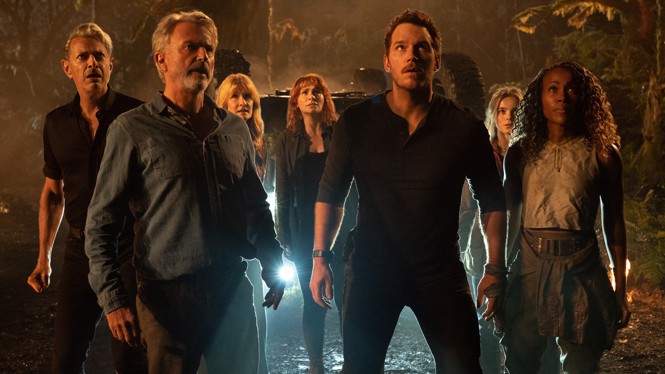
So if dinos can live among us fairly normally without posing much of a threat, then what is Jurassic World: Dominion even about? Nominally, the same thing that has been the overarching danger in each of the movies, going back to Michael Crichton’s original novel and Spielberg’s first adaptation—the creeping hand of capitalistic greed. Why did humanity manipulate ancient DNA to bring dinosaurs into the modern world? For scientific advancement, maybe, but mostly to sell tickets and merchandise. The Jurassic series, in both its best and worst installments, has always had a cynical streak, knowing the audience is looking for titillation while indirectly reminding them that their enjoyment is also lining the pockets of executives.
Trevorrow’s 2015 Jurassic World took this concept to its inevitable extreme by depicting a present day in which the park had finally opened to the public and—horror of horrors—became yesterday’s news, just another tourist trap trying to gin up new excitement to sell more tickets. In Dominion, the park barons have vanished, and the villain is now gene-tech CEO Lewis Dodgson (Campbell Scott), a minor character from the original film who was a corporate rival of the park’s creators. Dodgson, the head of a massive company called Biosyn, has created a dinosaur sanctuary in Italy where he can study the animals closely. He’s also tangled up in a fiendish plot to control the world’s food supplies by bioengineering primeval locusts and unleashing them on American farmland.
[Read: Our first encounter with T. Rex]
That story line is supposed to come across as a chilling parable about the excesses of business-minded gene modification, but locusts make for a far less effective adversary than a good old-fashioned tyrannosaur. Dominion further tries to shake things up by giving several of its biggest action sequences the verve of an espionage thriller: There’s a car chase through the streets of Malta, some deadly shootouts with dinosaur smugglers, and even a shot that directly replicates Jason Bourne jumping from window to window in The Bourne Ultimatum (except it involves, you know, a velociraptor). I appreciate the interest in genre-hopping. After all, Jurassic World: Fallen Kingdom was probably most interesting when it transformed into a haunted-house movie for its final act.
Trevorrow is, however, a fairly unexciting director of action; nothing in Dominion is egregious to look at, but those scenes feel cribbed from better material. Even worse are the efforts at any interpersonal interaction. Heroes Owen Grady (Chris Pratt) and Claire Dearing (Bryce Dallas Howard), former park employees turned amateur dino-liberators, are apparently a committed couple now, even though every stiff hug they share seems to be their first. Faring slightly better are Jurassic Park cast members Neill, Laura Dern, and Jeff Goldblum, reunited for the first time since 1993. Unfortunately, their plotline mostly revolves around the locust conspiracy, and every attempt at charming banter comes off as more than a little forced.
I can understand the impulse to try to flesh out the concept of DNA manipulation, this many Jurassic movies in. The beating heart of Dominion is the character Maisie Lockwood (Isabella Sermon), a teenager who was revealed in Fallen Kingdom to be the clone of a deceased scientist. Yet her internal dilemma over the means of her creation—is she human, or something different?—is not as weighty as Trevorrow thinks it is, and without much other dramatic thrust, Dominion mostly moves like an empty vessel. Making dinosaurs finally feel dull was a rather revealing storytelling choice for Trevorrow—viewers aren’t bored of seeing them on-screen, but he sure seems to be.
